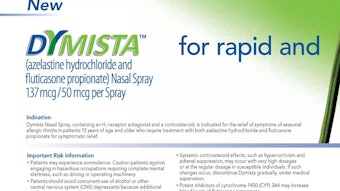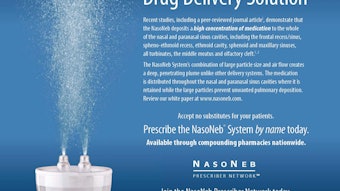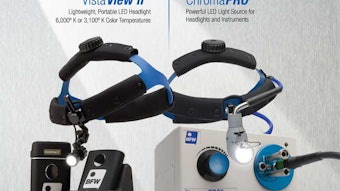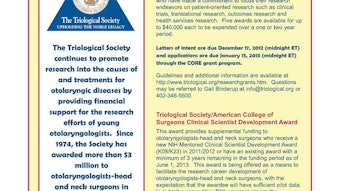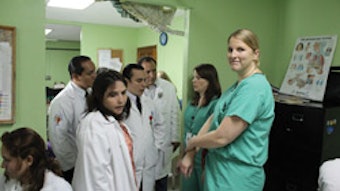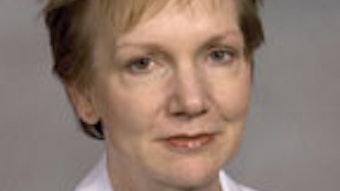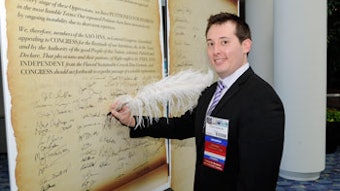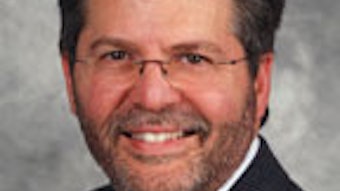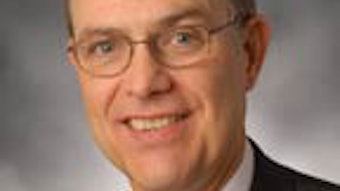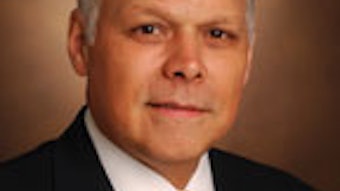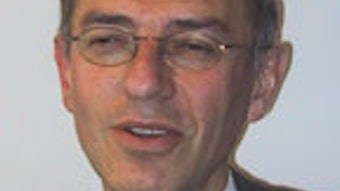Delegation Report: AMA Annual Meeting 2012
Liana Puscas, MD Chair, AAO-HNS Delegation to the AMA In June, the American Medical Association (AMA) conducted its Annual House of Delegates meeting in Chicago. Liana Puscas, MD, delegation chair, and delegates Michael S. Goldrich, MD, Robert Puchalski, MD, and Shannon P. Pryor, MD, represented the Academy. Joy Trimmer, JD, senior director for AAO-HNS Government Affairs, and Jenna Kappel, MPH, MA, director for AAO-HNS Health Policy, served as our staff liaisons. Several AAO-HNS members were elected to leadership positions during the meeting. The delegation congratulates Dr. Puscas, who was elected chair of the Otolaryngology Section Council; Dr. Goldrich, who was elected secretary of the Otolaryngology Section Council; and Dr. Pryor, who was elected as an at-large member of the Women Physicians Congress Governing Council. A number of issues are always discussed and/or considered by the House of Delegates. However, this year there were several topics that pertain to otolaryngology, including: Electronic prescribing of controlled substances. Currently, many electronic health record (EHR) vendors and pharmacies do not permit electronic prescriptions for narcotics. The AMA voted to advocate for removal of legal barriers to electronic prescribing of controlled substances, and in the interim, to work with the Centers for Medicare and Medicaid Services to eliminate from any program the requirement for electronic prescription of controlled substances until such time as the necessary protocols are in place to allow pharmacies and electronic prescribing software to process such prescriptions. Drug shortages. Various drug shortages have affected the practice of otolaryngology–head and neck surgery (OHNS) in recent years. The AMA House of Delegates supported measures to require drug companies to give notice of impending shortages and for the Food and Drug Administration (FDA) to allow other companies to step in and manufacture needed drugs in the face of looming shortages. Sign language interpretation. This is germane to many OHNS practices, but is often overlooked in the larger discussion of reimbursement for translation services. The AMA voted to seek legislation and/or regulation to require health insurers to fully reimburse providers for the cost of providing sign language interpreters for hearing impaired patients. Tobacco use. The consequences of tobacco use often present to an otolaryngologist’s office manifesting as head and neck cancer or as a contributing factor to allergic rhinitis and sinusitis. Although the Board of Trustees had originally proposed that the AMA no longer needed its annual report on tobacco use and the ongoing efforts to curb that use, the House of Delegates voted to continue the report. The report contains information on the demographics of tobacco use and actions taken by government and health agencies to address its social, economic, and health effects. Support for private practice. In an era when traditional private practice is at risk, the AMA voted to strongly continue its support of private practice because patients and physicians benefit from keeping this as a viable option for healthcare delivery. Medicare Financing Options. The AMA’s Council on Medical Service has been charged with taking an in-depth look at transitioning Medicare from its current model to one in which beneficiaries would receive a defined contribution from the federal government. This would allow greater flexibility for Medicare recipients to choose either traditional Medicare or a private health insurance plan. For more information, email govtaffairs@entnet.org. The AMA House of Delegates will next meet for its interim meeting November 10–13 in Honolulu, HI.
Liana Puscas, MD
Chair, AAO-HNS Delegation to the AMA

A number of issues are always discussed and/or considered by the House of Delegates. However, this year there were several topics that pertain to otolaryngology, including:
Electronic prescribing of controlled substances. Currently, many electronic health record (EHR) vendors and pharmacies do not permit electronic prescriptions for narcotics. The AMA voted to advocate for removal of legal barriers to electronic prescribing of controlled substances, and in the interim, to work with the Centers for Medicare and Medicaid Services to eliminate from any program the requirement for electronic prescription of controlled substances until such time as the necessary protocols are in place to allow pharmacies and electronic prescribing software to process such prescriptions.
Drug shortages. Various drug shortages have affected the practice of otolaryngology–head and neck surgery (OHNS) in recent years. The AMA House of Delegates supported measures to require drug companies to give notice of impending shortages and for the Food and Drug Administration (FDA) to allow other companies to step in and manufacture needed drugs in the face of looming shortages.
Sign language interpretation. This is germane to many OHNS practices, but is often overlooked in the larger discussion of reimbursement for translation services. The AMA voted to seek legislation and/or regulation to require health insurers to fully reimburse providers for the cost of providing sign language interpreters for hearing impaired patients.
Tobacco use. The consequences of tobacco use often present to an otolaryngologist’s office manifesting as head and neck cancer or as a contributing factor to allergic rhinitis and sinusitis. Although the Board of Trustees had originally proposed that the AMA no longer needed its annual report on tobacco use and the ongoing efforts to curb that use, the House of Delegates voted to continue the report. The report contains information on the demographics of tobacco use and actions taken by government and health agencies to address its social, economic, and health effects.
Support for private practice. In an era when traditional private practice is at risk, the AMA voted to strongly continue its support of private practice because patients and physicians benefit from keeping this as a viable option for healthcare delivery.
Medicare Financing Options. The AMA’s Council on Medical Service has been charged with taking an in-depth look at transitioning Medicare from its current model to one in which beneficiaries would receive a defined contribution from the federal government. This would allow greater flexibility for Medicare recipients to choose either traditional Medicare or a private health insurance plan.
For more information, email govtaffairs@entnet.org. The AMA House of Delegates will next meet for its interim meeting November 10–13 in Honolulu, HI.
